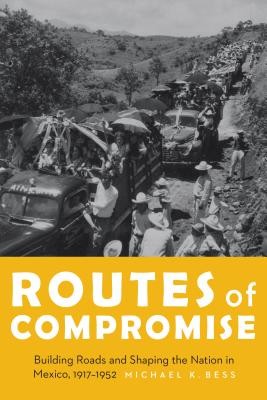
- We will send in 10–14 business days.
- Author: Michael K Bess
- Publisher: University of Nebraska Press
- ISBN-10: 1496202465
- ISBN-13: 9781496202468
- Format: 15.2 x 22.9 x 1.4 cm, softcover
- Language: English
- SAVE -10% with code: EXTRA
Reviews
Description
In Routes of Compromise Michael K. Bess studies the social, economic, and political implications of road building and state formation in Mexico through a comparative analysis of Nuevo Leon and Veracruz from the 1920s to the 1950s. He examines how both foreign and domestic actors, working at local, national, and transnational levels, helped determine how Mexico would build and finance its roadways.
While Veracruz offered a radical model for regional construction that empowered agrarian communities, national consensus would solidify around policies championed by Nuevo Leon's political and commercial elites. Bess shows that no single political figure or central agency dominated the process of determining Mexico's road-building policies. Instead, provincial road-building efforts highlight the contingent nature of power and state formation in midcentury Mexico.
EXTRA 10 % discount with code: EXTRA
The promotion ends in 16d.16:54:25
The discount code is valid when purchasing from 10 €. Discounts do not stack.
- Author: Michael K Bess
- Publisher: University of Nebraska Press
- ISBN-10: 1496202465
- ISBN-13: 9781496202468
- Format: 15.2 x 22.9 x 1.4 cm, softcover
- Language: English English
In Routes of Compromise Michael K. Bess studies the social, economic, and political implications of road building and state formation in Mexico through a comparative analysis of Nuevo Leon and Veracruz from the 1920s to the 1950s. He examines how both foreign and domestic actors, working at local, national, and transnational levels, helped determine how Mexico would build and finance its roadways.
While Veracruz offered a radical model for regional construction that empowered agrarian communities, national consensus would solidify around policies championed by Nuevo Leon's political and commercial elites. Bess shows that no single political figure or central agency dominated the process of determining Mexico's road-building policies. Instead, provincial road-building efforts highlight the contingent nature of power and state formation in midcentury Mexico.


Reviews